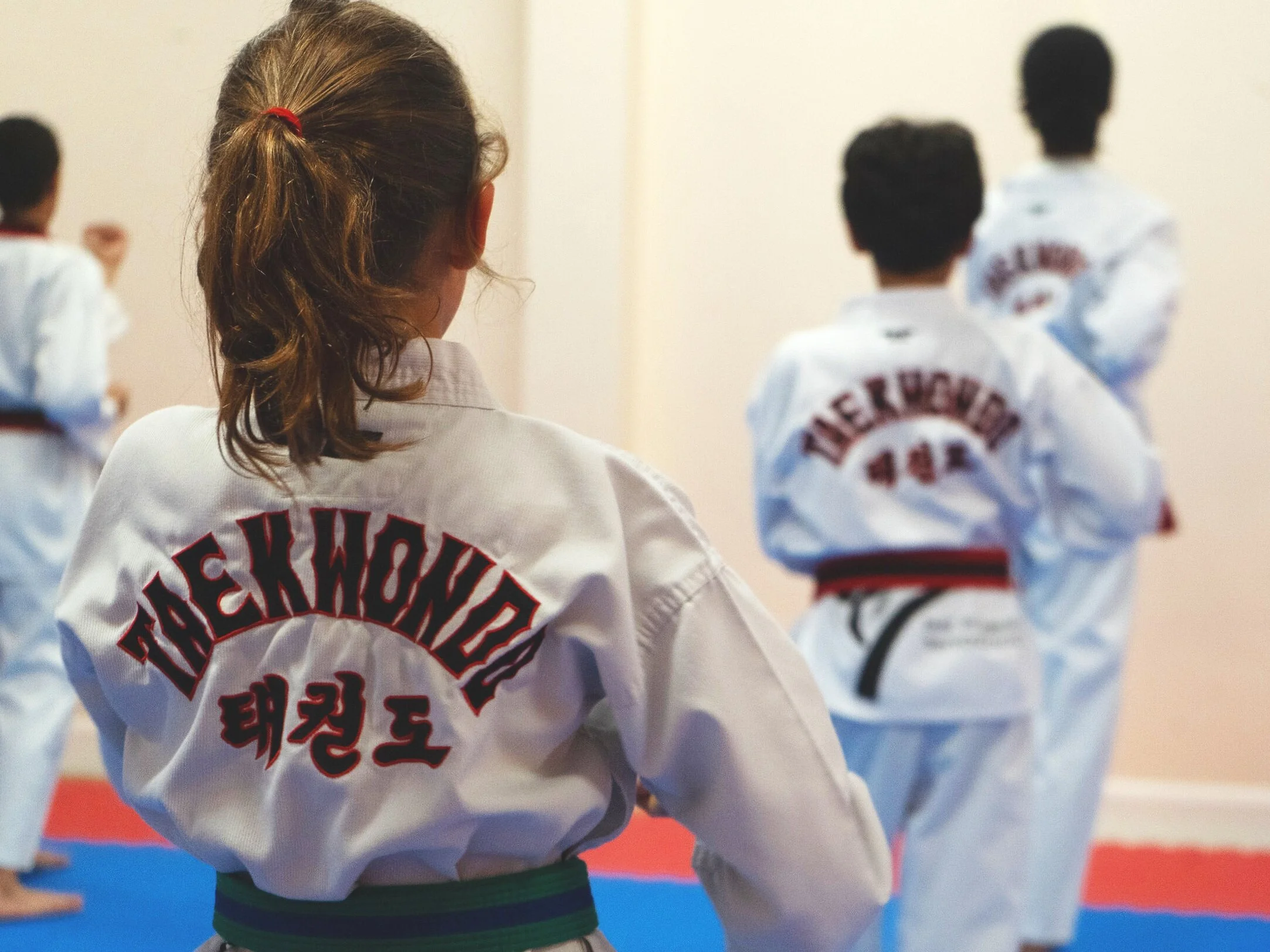Answering your FAQs: What are the five tenets of Taekwondo and what do they mean?
Merriam Webster Dictionary defines tenet as: “a principle, belief, or doctrine generally held to be true
especially: one held in common by members of an organization, movement, or profession.”
The martial arts are more than a series of well-timed kicks. Taekwondo focuses on the entire being, on the development of the entire individual. It is meant to build character along with physical strength, to teach values that extend to other areas of a person’s life. A successful black belt will not only be fluent in the movements that make up the sport but will also embody the five essential tenets of Taekwondo.
So, what are the five tenets of Taekwondo?
Courtesy
Integrity
Perseverance
Self-Control
Indomitable Spirit
What do the five tenets of Taekwondo mean?
Courtesy (Ye Ui):
Defined as : behaviour marked by polished manners or respect for others.
In a nutshell, courtesy is to treat others as we would want to be treated. Our Taekwondo studio is a space of mutual respect - students pick up on the courtesy extended to them by their coaches and are expected to maintain it with their senior and junior classmates. Courtesy includes maintaining politeness in everyday conversation, refraining from ill-speech and being mindful of good manners at all times. Courtesy also refers to tolerance and acceptance of all beliefs and approaches.
“Courtesy is a silver lining around the dark clouds of civilization; it is the best part of refinement and in many ways, an art of heroic beauty in the vast gallery of man’s cruelty and baseness.”
― Bryant McGill
Integrity (Yom Chi):
Defined as : firm adherence to a code of especially moral or artistic values.
To live with integrity is to be honest with ourselves and loyal to our values. In our studio, students are taught to deal with honesty both inside and outside of the classroom, to differentiate between right and wrong. A person with integrity is courageous enough to both stand up for what is right and to admit when they are in the wrong - when we live with integrity, we listen to our conscience and are not afraid of it. An important aim of Taekwondo is to build the ability to judge the appropriate use of our skills.
“A martial artist has to take responsibility for himself and accept the consequences of his own doing.”
― Bruce Lee
Perseverance (In Nai)
Defined as : continued effort to do or achieve something despite difficulties, failure, or opposition.
In other words: never give up! One of the most important teachings of Taekwondo is patience and perseverance in the face of hardships with the determination of achieving our goals. This not only translates to success in Taekwondo training but extends to all aspects of a person’s life. Through the hard-work, success and failure of their Taekwondo training, students learn how to deal with these things effectively outside of the studio.
“Many of life's failures are people who did not realize how close they were to success when they gave up.”
― Thomas Edison
Self-Control (Guk Gi)
Defined as : restraint exercised over one's own impulses, emotions, or desires.
Taekwondo teaches the virtues of both physical and emotional strength. A true master of martial arts is able to keep a level head at all times, with no space for unrestrained anger. To enforce this value, students of Taekwondo are slowly introduced to sparring, with an initial focus on calculated and controlled responses. Students are taught to appreciate Taekwondo as a defensive art as opposed to an aggressive fighting technique.
“The best fighter is never angry.”
― Lao Tzu
Indomitable Spirit (Baekjul boolgool)
Defined as : incapable of being subdued.
Indomitable Spirit is the consequence of applying all the other tenets in your life. A person with an indomitable spirit is able to persevere through everything in life by reaching into their inner strength. They are courageous and graceful in the face of both wins and losses, they have the capacity to give their all in everything they do.
“Strength does not come from physical capacity. It comes from an indomitable will.”
― Neale Donald Walsh
The five tenets of taekwondo teach essential life skills to children and adults alike. How do you exercise these principles in your daily life? What skills are you looking to hone in on this year?
To find out more about Peak Performance Taekwondo Academy or to join an online or in person class, get in touch:
Phone - 07961534525
Email - info@peakperformancetkd.co.uk
Address - Wimbledon Park Hall: Arthur road, Wimbledon, SW19 8AQ

